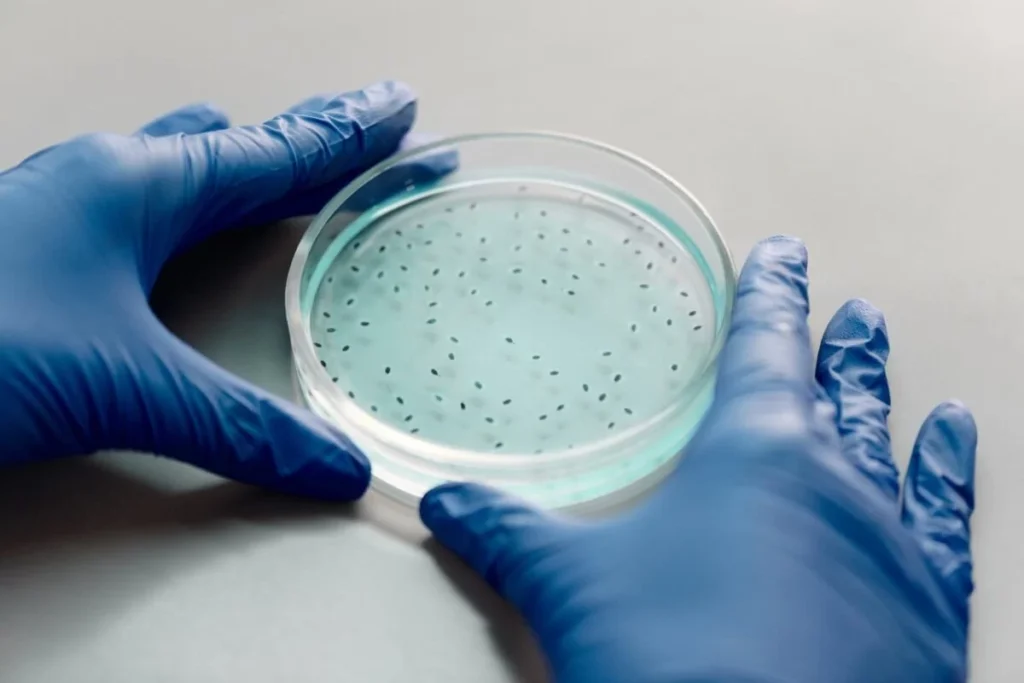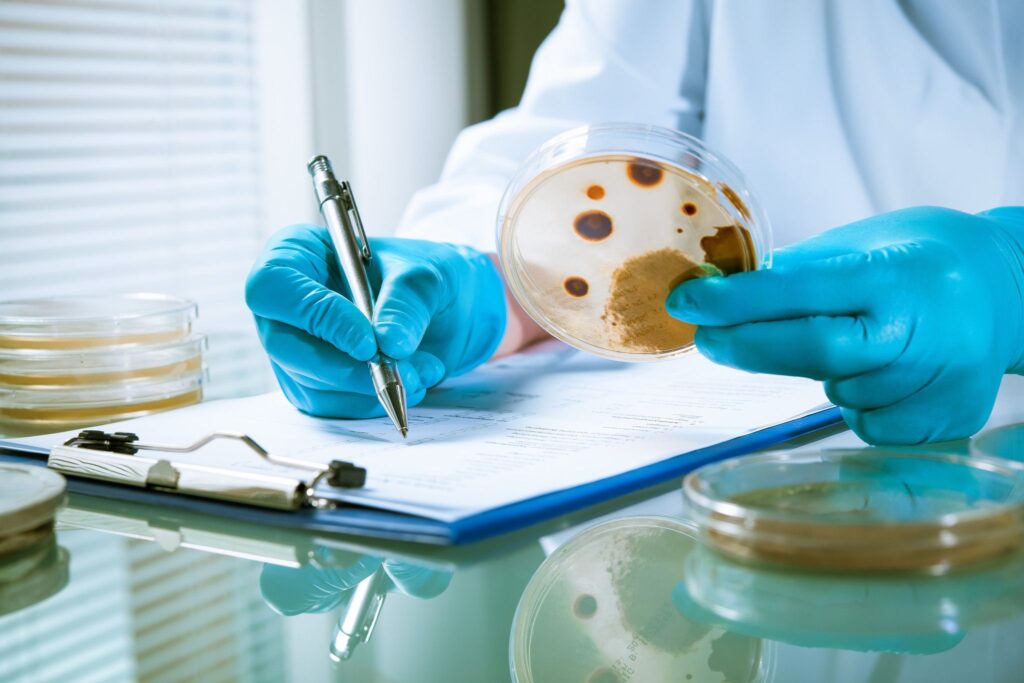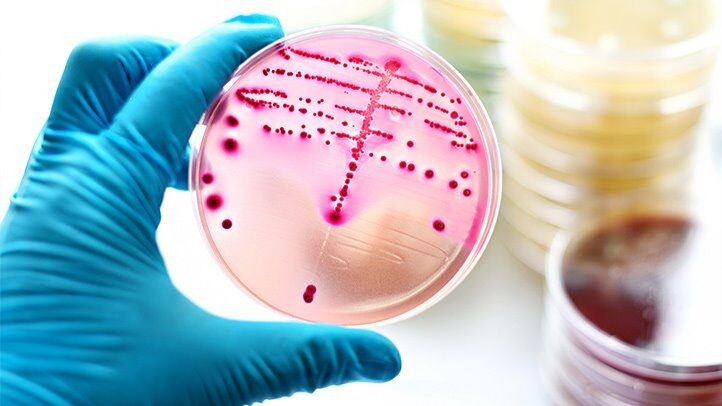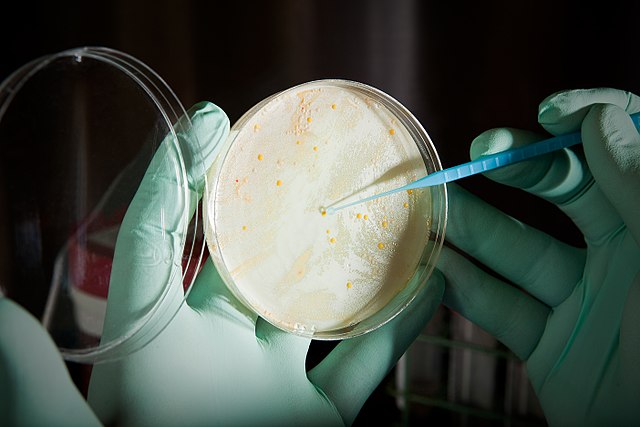Microbiology, the study of microorganisms, is crucial in daily life. In health and medicine, it aids in disease understanding, treatment, diagnostics, and public health. It’s vital in food production through fermentation, preservation, and safety. Environmental applications include bioremediation, nutrient cycling, and decomposition. Industrial uses encompass biotechnology, genetic engineering, and enzyme production. In agriculture, microbes enhance soil fertility, control pests, and promote plant growth. The human microbiome is key for digestion, nutrient absorption, and disease prevention. Microbes also serve as model organisms in scientific research, providing insights into fundamental biological processes. Thus, microbiology is integral to health, environment, industry, and scientific advancement.
How does microbiology impact health and medicine?

Microbiology, the study of microorganisms such as bacteria, viruses, fungi, and parasites, has a profound impact on health and medicine. Here are several key ways in which microbiology influences these fields:
Understanding Disease Pathogenesis
Microbiology helps in understanding how infectious diseases are caused, spread, and controlled. By studying the characteristics and behaviors of pathogens, scientists can determine how diseases develop, which is crucial for devising effective treatments and prevention strategies.
Development of Antibiotics and Vaccines
Microbiologists play a vital role in the development of antibiotics to treat bacterial infections and vaccines to prevent viral and bacterial diseases. Penicillin, the first antibiotic, was discovered through microbiological research. Continuous research is necessary to combat antibiotic resistance, a growing problem in medical practice.
Diagnostic Techniques
Advances in microbiology have led to the development of various diagnostic tools and techniques, such as:
- PCR (Polymerase Chain Reaction): Amplifies DNA sequences to detect the presence of pathogens.
- ELISA (Enzyme-Linked Immunosorbent Assay): Detects antibodies or antigens in a sample, useful for diagnosing infections.
- Culture Methods: Growing microorganisms from a sample to identify pathogens.
Infection Control and Prevention
Microbiology provides the basis for infection control practices in healthcare settings. Understanding how microorganisms spread and survive allows for the development of effective sanitation, sterilization, and disinfection protocols to prevent hospital-acquired infections.
Understanding the Human Microbiome
The human microbiome, the collection of all microorganisms living in association with the human body, has been found to have significant effects on health. Studies in microbiology have shown that the microbiome influences digestion, immune function, and even mental health.
Dysbiosis, or an imbalance in the microbiome, is associated with various conditions, including inflammatory bowel disease, allergies, and obesity.
Emerging Infectious Diseases
Microbiologists are at the forefront of identifying and studying new and emerging infectious diseases. For instance, the rapid identification of the SARS-CoV-2 virus responsible for the COVID-19 pandemic was made possible by advances in microbiological techniques.
Biotechnology and Genetic Engineering
Microbiology underpins many biotechnological applications in medicine. For example, genetically engineered bacteria are used to produce insulin, growth hormones, and other therapeutics.
Additionally, techniques such as CRISPR-Cas9, derived from microbial systems, are revolutionizing gene editing and have potential therapeutic applications.
Antimicrobial Resistance
Microbiological research is crucial in understanding and combating antimicrobial resistance (AMR). By studying how bacteria develop resistance to antibiotics, researchers can develop new strategies and drugs to overcome resistant strains and ensure effective treatments remain available.
Public Health
Microbiologists contribute to public health by monitoring and controlling outbreaks of infectious diseases.
They play a role in epidemiology, surveillance, and developing strategies to prevent and respond to epidemics and pandemics.
Food Safety
Microbiologists ensure the safety of the food supply by detecting and controlling pathogens that can cause foodborne illnesses.
This includes developing methods to test for contamination and understanding how to prevent microbial growth in food products.
What is the importance of microbiology in food and agriculture?

Microbiology plays a crucial role in both food and agriculture, impacting various aspects of these fields. In terms of food microbiology, it ensures safety and preservation through pathogen detection and the development of preservation techniques like fermentation, pasteurization, and canning. Microorganisms are also central to fermentation processes, producing foods such as yogurt, cheese, beer, and wine, which not only taste better but often have improved nutritional profiles.
Moreover, microbiologists ensure food quality through regular testing and monitoring for microbial contamination and spoilage. In agriculture, microbiology contributes to soil health and fertility by facilitating nutrient cycling and nitrogen fixation. Beneficial microorganisms like plant growth-promoting bacteria and mycorrhizal fungi enhance plant growth, while certain microbes are used for biological pest control, reducing reliance on chemical pesticides.
Additionally, microbiological techniques aid in composting organic waste and developing genetically modified organisms with desirable traits, promoting sustainable farming practices. Overall, microbiology plays a vital role in ensuring food safety, enhancing food production, and promoting agricultural sustainability through the harnessing of microorganisms’ power.
How does microbiology affect the environment?

Microbiology is about studying really tiny things called microbes, like bacteria and fungi. These little guys are super important for our environment because they do lots of cool stuff:
- Cleaning Up Messes: Microbes help clean up things like oil spills or dirty water by breaking down bad stuff into good stuff.
- Helping Plants Grow: They give plants the nutrients they need to grow big and strong, and they also protect them from getting sick.
- Keeping Air and Water Clean: Some microbes help keep the air and water clean by eating up yucky stuff in them.
- Living in Tough Places: Microbes can live in really hot places or deep in the ocean where it’s hard for other things to survive. They teach us about life in extreme places.
- Making Food and Medicine: Microbes make foods like cheese and yogurt taste yummy, and they help scientists make medicines to keep us healthy.
- Stopping Sickness: Sometimes, microbes can make people or animals sick. Scientists study them to learn how to stop diseases from spreading.
Final Words
Microbiology plays a vital role in our everyday lives, impacting various aspects such as health, food, agriculture, the environment, and industry. In health and medicine, microbiology is crucial for preventing and treating diseases, diagnosing illnesses, and improving public health practices. In food and agriculture, it aids in food production, safety, and enhancing agricultural practices. Environmental microbiology helps maintain ecosystem functions and assists in cleaning up pollutants. Industrially, microbiology is fundamental in biotechnology, pharmaceuticals, and bioprocessing. As research in microbiology continues to advance, it brings about new innovations and solutions, highlighting its ongoing relevance. Understanding and supporting microbiological research is essential for improving our quality of life and addressing future challenges.
